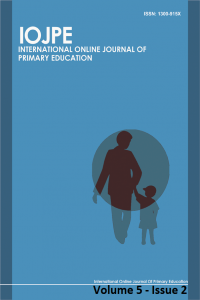Abstract
Education means all round development, this all round development means intellectual, social and emotional development. It is only education that can mould the behavior of an individual. READ (Rural Education and Development) Foundation is not-for-profit organization established in 1994 to address the dire need for education and literacy in Pakistan. Pakistan is facing an educational crisis with more than 25 million children not being able to avail their constitutional right to a quality education. One in ten of the world's out-of-school children are Pakistani. Education is the only tool which can enable the country to develop and progress amongst the communities of nations. Realizing this problem, READ Foundation's founders envisaged building a school system to serve the marginalized communities and underprivileged families and to contribute for MDG,s. The main aim of this study is to assess the actual role of READ Foundation of quality improvement in Pakistan. The purpose of this paper is to examine and compare the key roles of READ Foundation for providing quality education in Pakistan. For this purpose a significant review of on hand literature was passed out. On the basis of deeper and critical investigation into the literature, the study found that the READ Foundation truly contributed with the admirable system of accountability with equal opportunities to all. Having good quality assessment system, non political interference, and quality curriculum and teachers motivation for achieving quality oriented goals.
References
- Bonwell, C.C., & J.A. Eison. (1991). Active learning: Creating excitement in the classroom. ASHE-ERIC Higher Education Report No. 1. Washington, DC: George Washington University.
- READ Foundation. (2016). Rural Education and Development Foundation, Head Office Islamabad, Pakistan
- Angelo, T. A., & Cross, K. P. (1993). Classroom assessment techniques: A handbook for college teachers, 2d ed. San Francisco: Jossey-Bass Publishers.
- Latzko, W.J. 1997. Modeling the method: The Deming classroom. Quality Management Journal 5, no.5:46-55.
- Pakistan Education-For-All (EFA) National Review Report (2015) Islamabad: Ministry of Education AEPAM, Government of Pakistan.
- Shelnutt, J. W., & K. Buch. 1996. Using total quality principles for strategic planning and curriculum revision. J. Engr. Education, 85, no.3:201-207
- Black, Sandra E. 1999. Do Better Schools Matter? Parental Valuation of Elementary Education. Quarterly Journal of Economics 114(2) May: 577-99.
- World Bank (1994). Report on Higher Education: The Lesson of Experience, Islamabad
- Saeed, K. A. (2003). Quality in higher education and universities. Paper presented at National Conference on Quality Assurance in Education in Pakistan. Pakistan Institute of Quality Control Lahore
- UNDP. (2002). Human development report 2002, Oxford University Press, New York
- Pakistan Education Statistics (2013). National Education Management Information System NEMIS: Academy of Education Planning and Management AEPAM, Government of Pakistan.
- Alvi, N. A., & Alam, A. (2004). Pakistan Institute of Quality Control. Quality Review, J Ibrahim Publisher, Lahore: 1.
Details
| Primary Language | English |
|---|---|
| Subjects | Other Fields of Education |
| Journal Section | Research Articles |
| Authors | |
| Publication Date | December 31, 2016 |
| Published in Issue | Year 2016 Volume: 5 Issue: 2 |
Creative Commons Licenses

All articles published in International Online Journal of Primary Education's content is licensed under a Creative Commons Attribution 4.0 International License (CC BY 4.0).
(Counter start: February 28, 2021)





